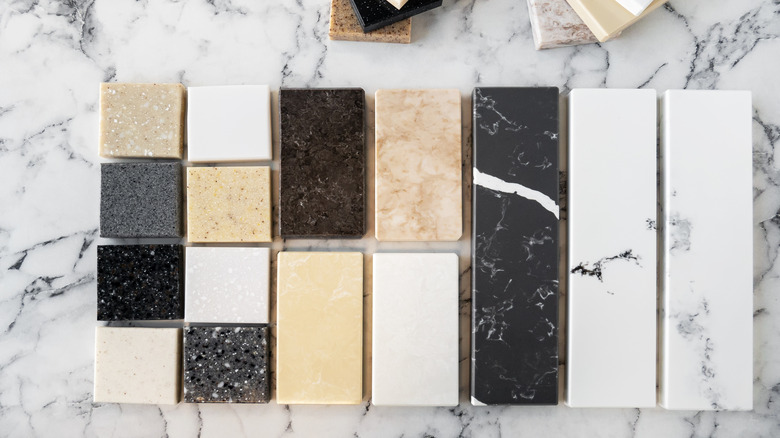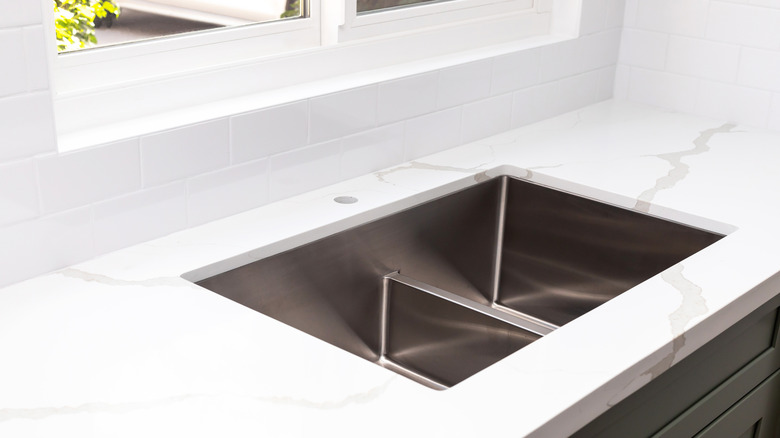The Once-Favored Kitchen Countertop That's Officially Outdated
When you're thinking about remodeling your kitchen, choosing a countertop material is one of the most important decisions you'll make. The countertop is arguably a stand-out feature in the kitchen. It can either make your space look modern or outdated. Selecting a countertop within your budget is crucial, but you also don't want to pick something so dated that you'll be tempted to change it out in the near future. To that end, you may want to consider avoiding man-made quartz, as this material is considered outdated for kitchen countertops.
Also known as "engineered quartz" or "quartz" for short, these kitchen countertops are manufactured rather than being extracted from the ground. Unlike 100% natural stone, engineered quartz is comprised of about 90% ground quartz. The remaining 10% consists of synthetic pigments to provide color, as well as resins to help seal the countertop and provide protection against heat and spills.
Overall, the engineered results of these quartz countertops are what have made them so popular over the last several years. Not only are there numerous color options, but the material is also less expensive than other options, such as granite, while still being durable. Nevertheless, engineered quartz has started to become unpopular among designers and homeowners alike. You may want to keep this in mind before installing this countertop material, particularly if you're looking for ideas for your kitchen remodel for the purpose of selling your home.
Why engineered quartz countertops are falling out of favor in kitchens
There are multiple things to consider before installing quartz countertops, with their growing lack of popularity among them. One large reason these are going out of style has to do with the manufacturing process and its harm to workers in the field. Since a 2023 study published in JAMA Internal Medicine noted deadly silicosis cases from silica dust, engineered quartz has garnered increased attention for its negative health impacts on the people who help make the countertops. In fact, engineered stone countertops are banned in Australia as of July 2024 due to these health concerns.
Aside from the ethical factors, there are also practical problems with this material. First, man-made quartz is not as durable as other stone countertops. While it is nonporous and stain-resistant, it's also susceptible to heat damage, which can be a major issue in a kitchen. What's more, quartz is notorious for its manufactured appearance, which can make it look like a cookie-cutter countertop rather than a unique kitchen centerpiece.
If you're still attracted to the idea of having a quartz countertop in your kitchen but have concerns about the crystalline silica it contains, you might consider options with lower silica content, such as porcelain or glass blends. To check out the pros and cons, it's worth reading what our stone countertop experts revealed about porcelain vs. quartz. You can also contact the manufacturer to ask them about the overall silica content in the stone. Another option is to choose natural stone countertop materials, like granite or quartzite.

